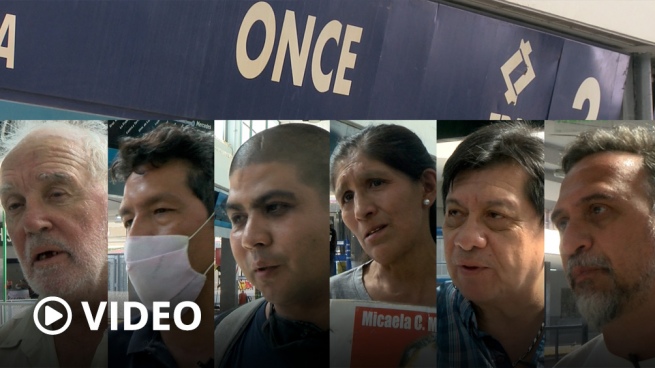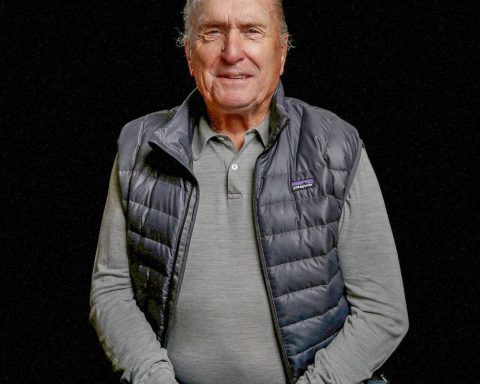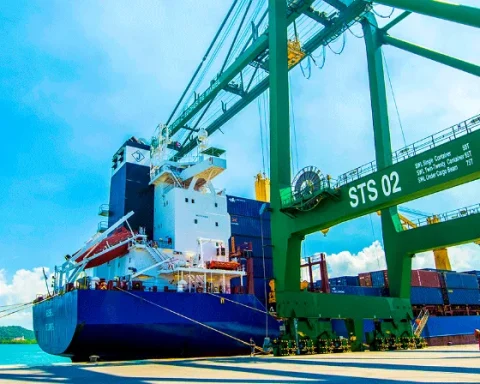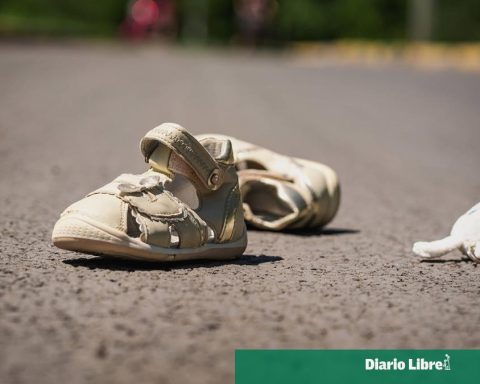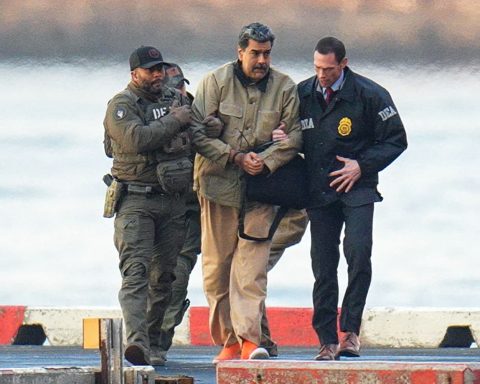Relatives of the victims of the Once tragedy expressed that “so much pain” for the lives lost must be honored through the commitment to guarantee “dignified” public transport so that “it does not happen again”, on Tuesday a decade of the sinister railway that left 51 dead and almost 800 injured.
On February 22, 2012 at 8:33 in the morning, the Chapa 16 train on the Sarmiento line, which ran from the west of the Buenos Aires suburbs, collided with the containment bumpers of platform 2 of the Once station, in the Balvanera neighborhood of Buenos Aires.
A decade after the incident, relatives of the victims gathered at the request of Télam at the scene of the tragedy and They agreed that the greatest tribute to lost lives is “not to forget them” so that “it doesn’t happen again.”
“The 10 years are heavy, today my son would be 42 years old and not having his company, coping with it is heavy,” he told Télam Juan Frumento, Leonel’s father, a 32-year-old man who, like so many others, had taken the train to work that morning.
In front of platform 2 of the Once station, Juan asserted that “the loss of my son is irreparable”, and that the only thing “what we can amend is what comes, that the same thing does not happen”.
To his son and all the people who lost their lives, he assured, he feels “like martyrs”, whose sacrifice “should have some meaning, what I find is that the transport is worthy”.

This sinister “undoubtedly was a break, a hinge in the transport”he considered for his part Paolo Menghini, Lucas’s father, the 19-year-old who was found 60 hours after the crash.
“As a result of the deaths, there was a different way of looking at the quality of the services, of that I am absolutely convinced,” Menghini told Télam and assured that “the tragedy of Once is in the collective unconscious of the country.”
That the passengers take care of and value the units is a “great tribute to those who left and to our struggle”, considered Menghini and, regarding the signs of affection they constantly receive from society, he added: “That in 10 years this continues to happen means that not only were the lives lost not forgotten, but that everything we did is valued so that it does not happen again.”
Theirs was never a fight motivated by “hatred or revenge”, but by the search to “obtain justice for our relatives who died”, which came after the trials known as Eleven I and II, which began in 2014 and 2017 respectively.
“We never stop feeling accompanied by society, from the first moment until today”, Lucas’s father pointed out, while reflecting that time “helps to live with the pain but does not close the wounds.”
“We never stop feeling accompanied by society, from the first moment until today.”Paolo Menghini

The sentiment is shared by Angel Cerricchiothe father of Matías -33 years old- and the father-in-law of Natalia Benítez, a newlywed couple who had taken the train that morning that “will never be erased from my life,” he assured.
“I went desperate to look for him in hospitals, with my wife and my children, but I couldn’t find him. As we passed the hospitals, desperation increased, but I didn’t give up,” he said about the hours before learning the news that changed the life of all your family.
“Unfortunately, February 22 is the birthday of the mother (of Matías). When they left home, Matías told her: ‘I’ll leave the cake in the fridge and when I come back we’ll celebrate.’ The mother could never celebrate a birthday again.” , counted.

TO Gloria Machicao “The anger and impotence” still torments her every moment since the day her niece, Micaela Cabrera, a young nursing student took the Sarmiento train to take an exam and “didn’t come back,” she recalled mired in anguish .
“It’s been 10 years but for me it’s like it happened yesterday,” reflected the aunt, who was in charge of raising Micaela’s children who were 5 and 8 years old when it happened.
“She was a happy girl, she had a future ahead of her, she wanted to become a professional. She was a good mother, a good daughter. We miss her a lot,” she said, clinging to the photo of Micaela that she has printed on a poster.

On the name of Nayda Tatiana Lezano registered in the Memorial of the Hearts, on platform 1 of the station, her husband stops and lays his eyes, Edwin Ojedaand looking towards the sky makes the sign of the cross.
That morning, Ojeda lost his wife and the mother of his three daughters, who had taken the train to go to the Bolivian consulate where she worked as a lawyer, and also Uma, with whom Nayda was six months pregnant.
“These 10 years were very difficult for me, because I had to stop working to be able to take care of the children,” said Ojeda, who asked the State to “help all the relatives” through financial compensation to relatives of the fatal victims. and survivors of Eleven.

Ojeda questioned “the complete desolation” by all the governments that passed, both nationally and in the City of Buenos Aires, while highlighting the support of then-Cardinal Jorge Bergoglio who “never forgot us.”
This Tuesday the 22nd, at 8:30 am, relatives and friends of the victims and injured people convene the memorial service at the Once station.
